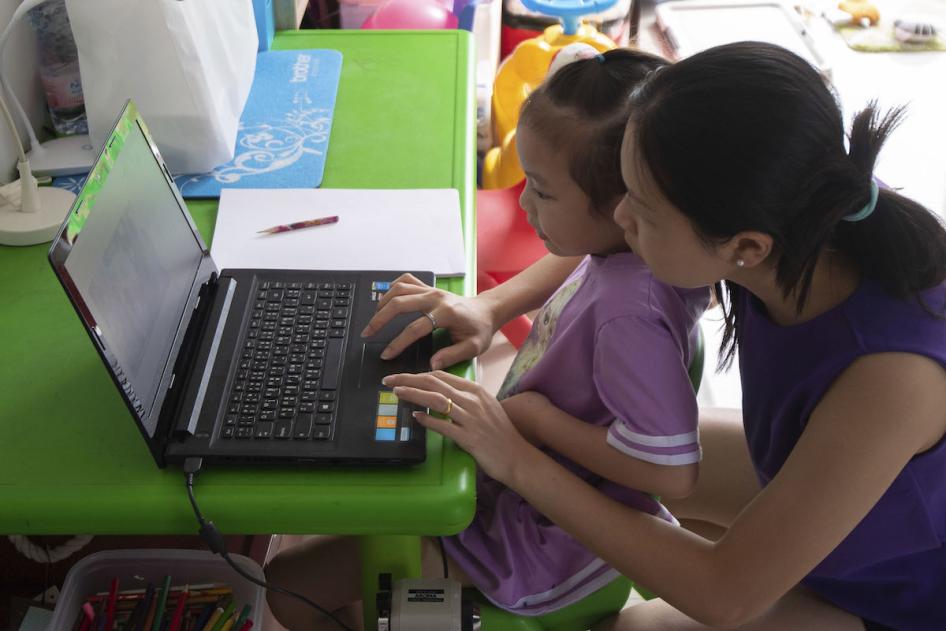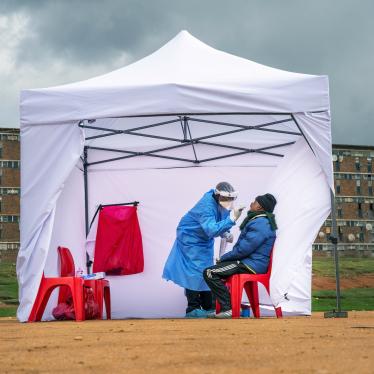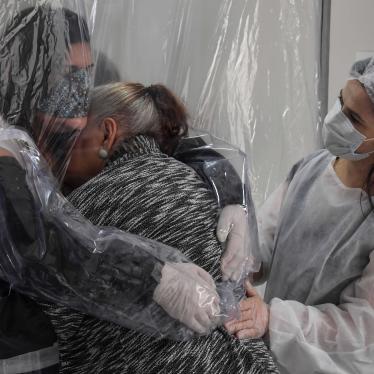The Covid-19 pandemic has dramatically increased the time many people, particularly women, spend caring for others. In an ongoing global Human Rights Watch survey, most respondents said the pandemic affected how much time they spend doing unpaid housework and/or caring for others.
Respondents to our nonrepresentative survey, on average, said they went from more than four hours a day spent on caregiving to over seven hours, an increase reflected in other research. While this affects people across genders, globally women do two and a half times as much unpaid care and domestic work as men.
“We have to look for ways to keep them occupied so they don't ruin the whole house,” said a young woman in Nigeria about the children in her home. “We've come up with a kind of timetable … However most times this timetable doesn't work and they're restless.” “Housework has increased exponentially,” said a mother in the United States, estimating she has gone from three hours a day of caregiving to eight hours.
Many parents – especially mothers – have lost paid employment as a result. “I have had to reduce my working hours to half – with the respective pay cut – to be able to tend to my kids,” said a mother in Peru.
Others are struggling. “While I am very fortunate to be employed and working, the hours are much longer and well into the night,” a teacher and parent wrote. “I cannot keep up with housekeeping.”
A woman in the UK said she is working, but “I still have to care for both of my parents who have not left the house since March 8th.”
“Can only work after children have gone to bed,” said a solo mother of two.
As governments continue to respond to Covid-19, caregivers should be at the center of planning. As workplaces re-open, people with increased caregiving responsibilities will not be able to return to work until those responsibilities lighten – through schools and childcare re-opening, and access to social care assistance. People, including teachers and paid caregivers, also need to feel safe – many respondents feared sending children back to school before a vaccine is available.
Any government responses failing to take caregivers into account will harm those – mostly women – caring for others and already struggling, and often failing, to stay in the paid workforce. Governments should develop gender-responsive recovery plans that ensure adequate caregiving support for people re-entering paid work and offer special assistance to people driven out of paid work by caregiving responsibilities. They should also address long-term inequities, such as lack of affordable childcare and the gender pay gap, that contribute to women being hit hardest by caregiving during the pandemic.
|
Dispatches
Caregivers Overwhelmed by Increased Demands Under Pandemic
“I Cannot Keep Up,” Says One Parent
Your tax deductible gift can help stop human rights violations and save lives around the world.
Region / Country
Tags
Topic
Most Viewed
-
November 25, 2019
A Dirty Investment

-
June 24, 2022
Q&A: Access to Abortion is a Human Right

-
April 27, 2021
A Threshold Crossed

-
April 9, 2024
Gaza: Israel’s Imposed Starvation Deadly for Children
-
October 29, 2020
“I Sleep in My Own Deathbed”






